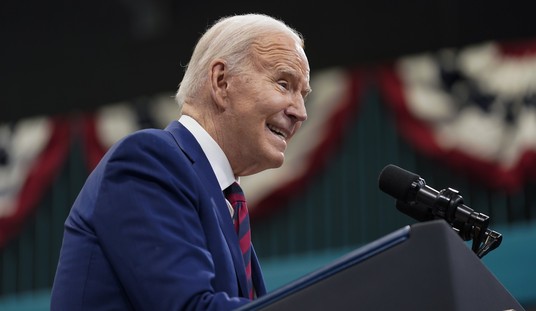Well, this move by Speaker Boehner doesn't exactly follow my Simpson-Bowles playbook to a tee -- but Erskine Bowles does make an appearance, and Republicans are going on (realistic, reasonable) offense. In a new letter addressed to the president, House Republican leaders firmly reject the president's non-starter "proposal," pointedly decline to counter with an equally unrealistic wish list, and offer an alternative bipartisan solution:
With the fiscal cliff nearing, our priority remains finding a reasonable solution that can pass both the House and the Senate, and be signed into law in the next couple of weeks. The best way to do this is by learning from and building on the bipartisan discussions that have occurred during this Congress, including the Biden Group, the Joint Select Committee, and our negotiations leading up to the Budget Control Act. For instance, on November 1 of last year, Erskine Bowles, the co-chair of your debt commission, presented the Joint Select Committee with a middle ground approach that garnered praise from many fiscal watchdogs and nonpartisan experts. He recommended that both parties agree to a balanced package that includes significant spending cuts as well as $800 billion in new revenue. Notably, the new revenue in the Bowles plan would not be achieved through higher tax rates, which we continue to oppose and will not agree to in order to protect small businesses and our economy. Instead, new revenue would be generated through pro-growth tax reform that closes special-interest loopholes and deductions while lowering rates.
On the spending side, the Bowles recommendation would cut more than $900 billion in mandatory spending and another $300 billion in discretionary spending. These cuts would be over and above the spending reductions in the Budget Control Act. This is by no means an adequate long-term solution, as resolving our long-term fiscal crisis will require fundamental entitlement reform. Indeed, the Bowles plan is exactly the kind of imperfect, but fair middle ground that allows us to avert the fiscal cliff without hurting our economy and destroying jobs. We believe it warrants immediate consideration. If you are agreeable to this framework, we are ready and eager to begin discussions about how to structure these reforms so that the American people can be confident that these targets will be reached.
Recommended
Republicans are putting forward a legitimate counter-proposal, which draws from an "imperfect but fair middle ground" plan authored by the Democratic co-chairman of the president's fiscal commission, Erskine Bowles. Bowles, for reference, was President Clinton's chief of staff. The Washington Post summarizes the broad outlines of his idea, which Republicans have essentially appropriated: "House Republican leaders endorsed a far-reaching plan Monday to rein in the national debt that would raise $800 billion in new tax revenue, slice $600 billion from federal health programs and apply a stingier measure of inflation to Social Security benefits." That $800 Billion figure is similar to the number reportedly offered up by Boehner during debt negotiations last summer, and slightly more than the one advanced by Republicans on the so-called "super committee." (The special joint committee failed to reach an agreement when Democrats rebuffed the GOP plan and refused to put forward a unified proposal of their own). Crucially, none of these new revenues come from increased marginal tax rates; they are derived from a tax code simplification plan, which cuts and caps loopholes, deductions and credits (which disproportionately favor the rich). These effective tax increases are partially offset by lowering rates across the board, a key feature of the original Simpson-Bowles proposal.
A House Republican leadership aide tells Townhall that while it's far from ideal, party officials decided to embrace Bowles' compromise in order to avert the harsh economic impact of going over the cliff. The tax side of the plan is short on specifics at the moment, though the aide notes that "a number of center-left groups" have published frameworks that could attain $800 Billion in new revenues without raising tax rates. The president's fiscal commission did the same, of course. Republicans believe this deal is palatable on two fronts: First, it achieves the revenue target described in the Senate bill -- which the president had been urging the House to pass, prior to his $1.6 trillion bombshell last week -- but "without raising tax [rates]." Second, "it has the benefit of having Bowles' name attached to it, which lends additional bipartisan credibility." For reasons I've described previously, it will be fairly difficult for Democrats and the press to cast Republicans as wild-eyed radicals for signing on to an agreement forged by a recognized pillar of bipartisanship, who also happens to be a lifelong Democrat.
My biggest gripe with this GOP gambit is that simply sending a letter is accompanied by no optics. The president is literally out on the campaign trail, holding rallies for the explicit purpose of painting Republicans as millionaire-protecting, uncompromising "Scrooges." A letter doesn't hold a candle to those theatrics, and theatrics are an important part of persuading the public in a hyper-visual media environment. On the other hand, the media will be forced to cover this, and some outlets are even painting it as a dramatic gesture by Republicans. Obama has also hurt himself by "overplaying his hand" in the estimation of David Gergen, the ultimate barometer of Beltway conventional wisdom. The White House's preposterous offer has been almost universally panned ever since it was unveiled last Thursday; Republicans' counter-proposal looks sober, serious and bipartisan by comparison. Republicans must now begin a media blitz explaining their new solution, highlighting that it features substantial revenues without slapping small businesses and families with higher rates, and underscoring that its author is the respected Democratic co-chair of the president's own fiscal commission. If the public gets wind of these broad strokes, Republicans could erode Democrats' blame-game advantage, which would give them cover to call the president's veto bluff by passing a viable plan. Which begs the question, is this president actually serious about solving this problem and avoiding the cliff? I discussed that question earlier this afternoon with Fox News' Megyn Kelly:
Blaming other people has served this president well for much of his political career. It's no surprise that he's going back to that well. If he senses that his opportunity to stick the GOP with public outrage is diminishing, perhaps other considerations may overwhelm his vindictive partisan instincts. Considerations like his own tarnished legacy if the economy re-enters recession on his watch, not to mention the very real pain a double-dip would inflict on tens of millions of Americans who are already struggling.
UPDATE - Guess who's "willing" to go over the fiscal cliff?
According to senior administration officials, Obama is not eager to go over the cliff, but he is willing. If no deal is reached by the end of the month, all the Bush tax cuts — for the rich and not-rich — will evaporate. Obama would then demand in early January that the new Congress immediately pass legislation to reinstate the lower tax rates for the bottom 98 percent.
UPDATE II - None of this, of course, does much of anything to alter the trajectory of our crippling $87 Trillion debt -- but that's another story altogether.
UPDATE III - Surprise! The GOP/Bowles proposal has been unceremoniously discarded by the White House and Harry Reid. Not enough "balance" and "fairness" in there, it seems.
























Join the conversation as a VIP Member